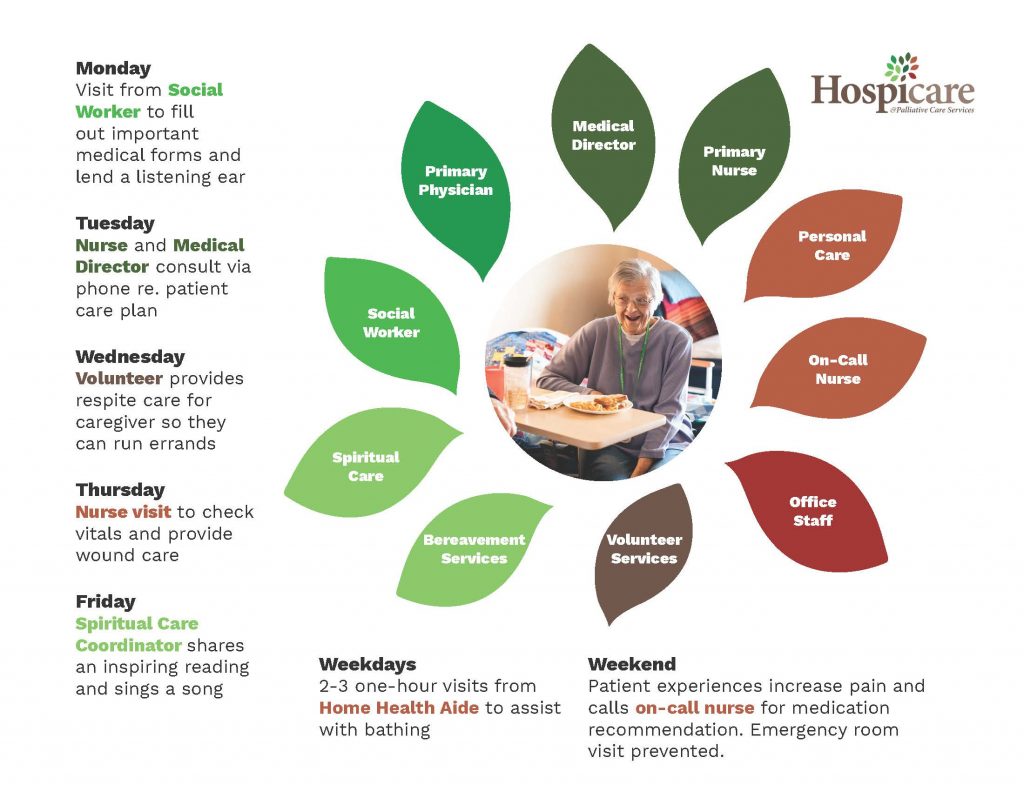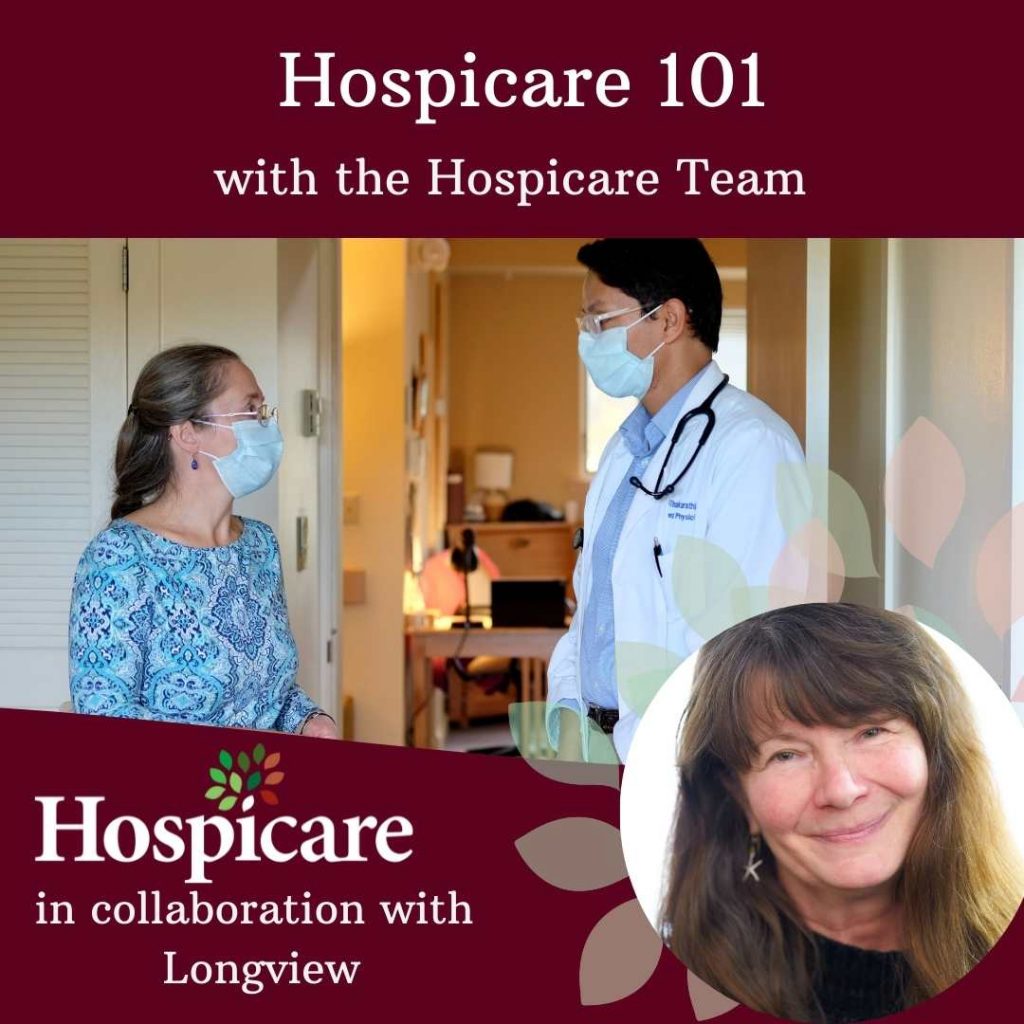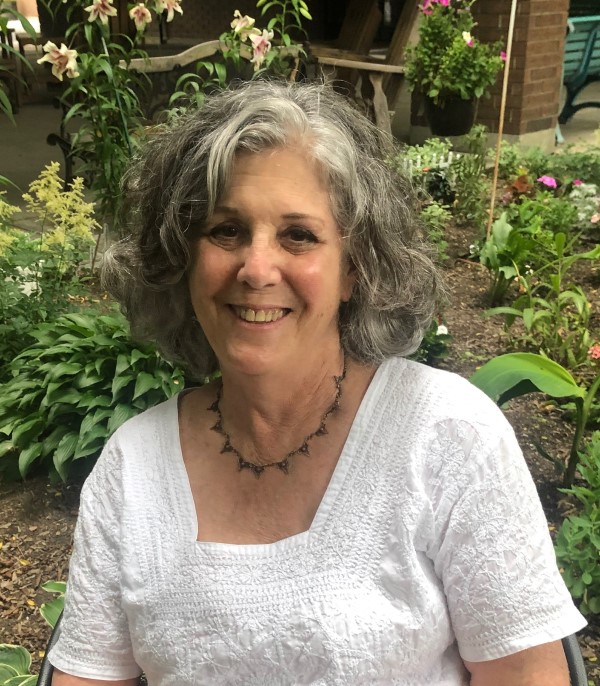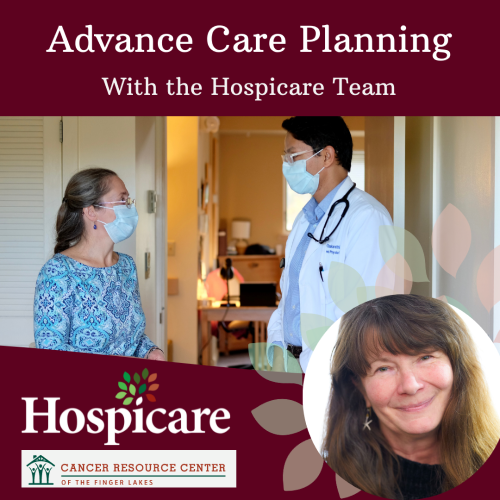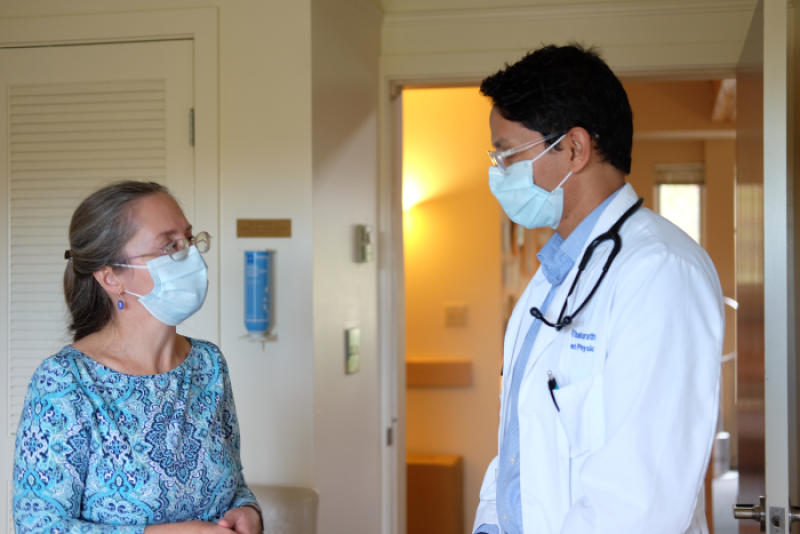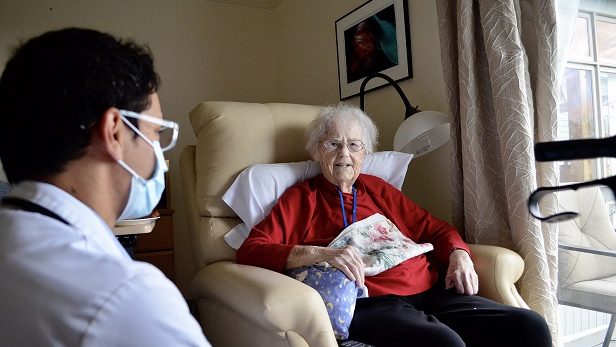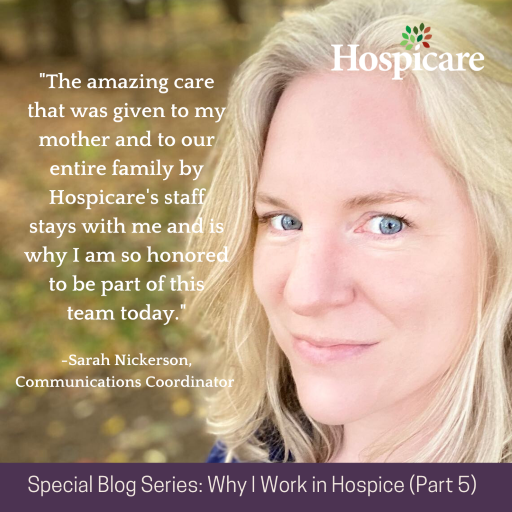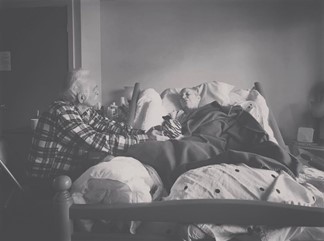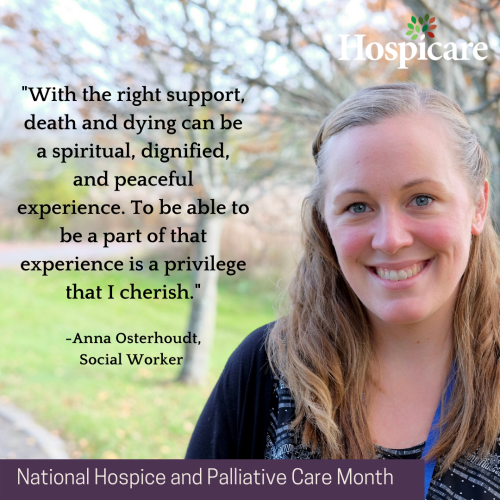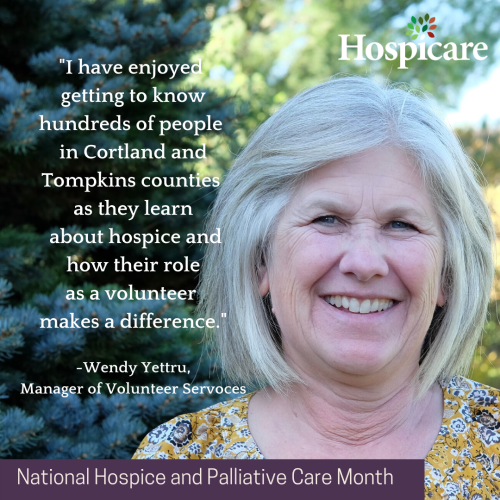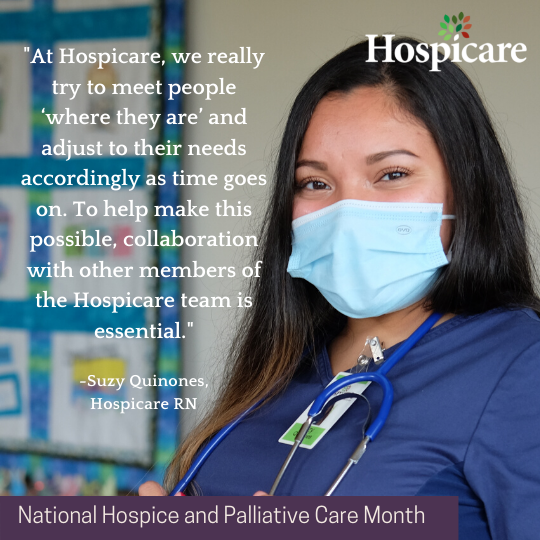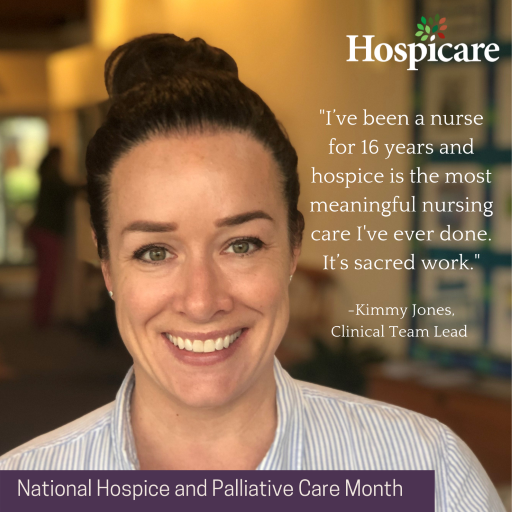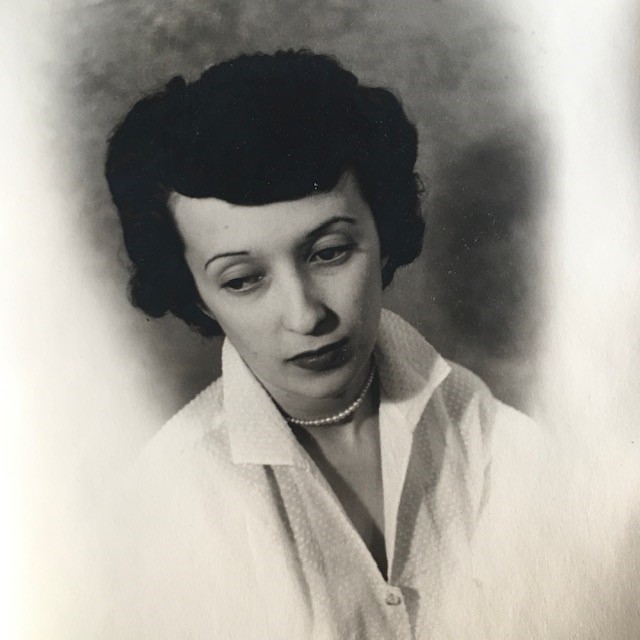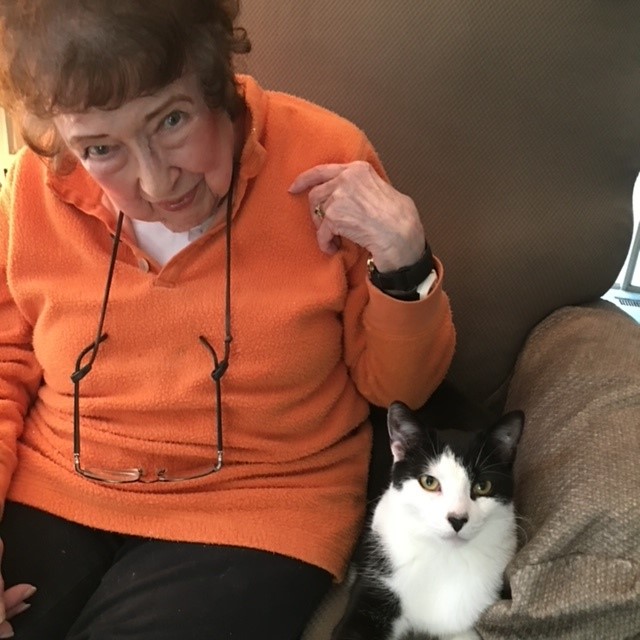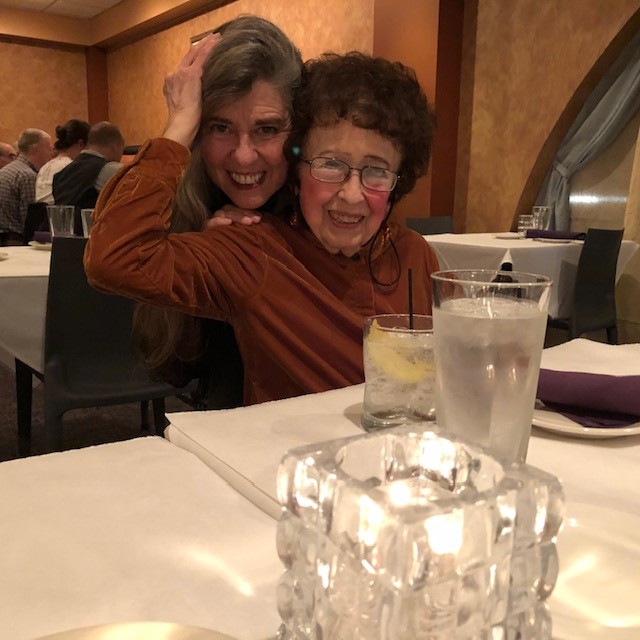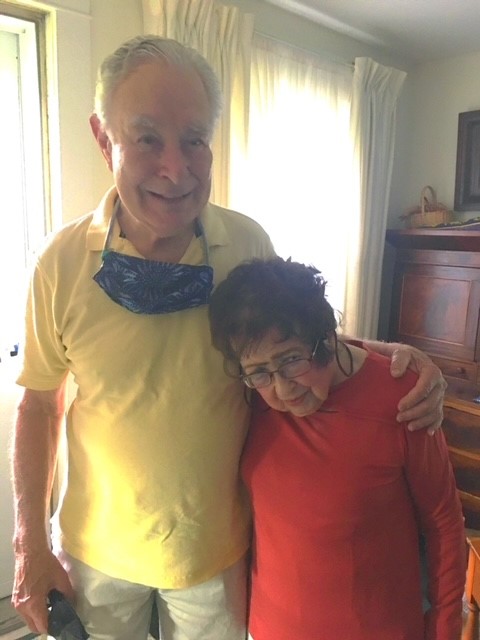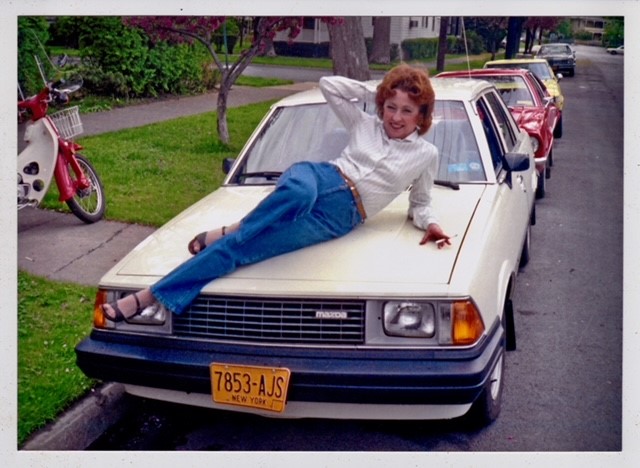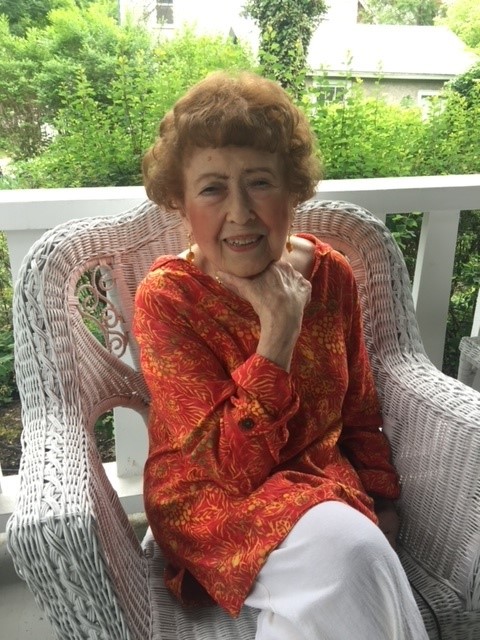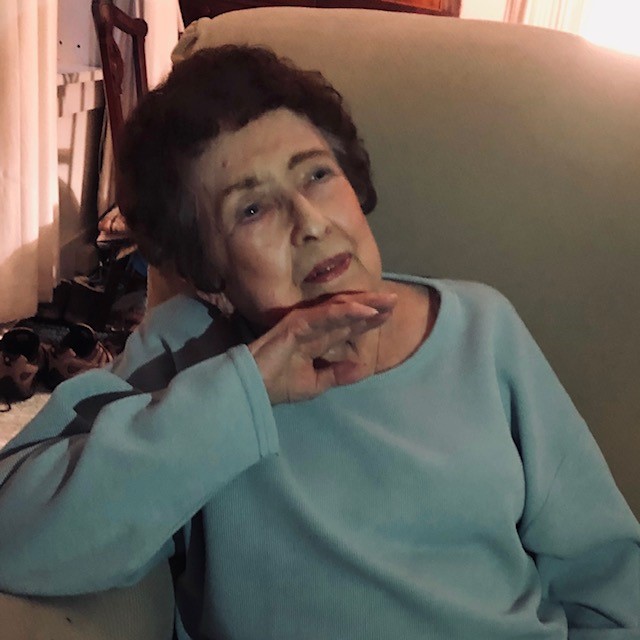By Jane Baker Segelken, MA, MSW
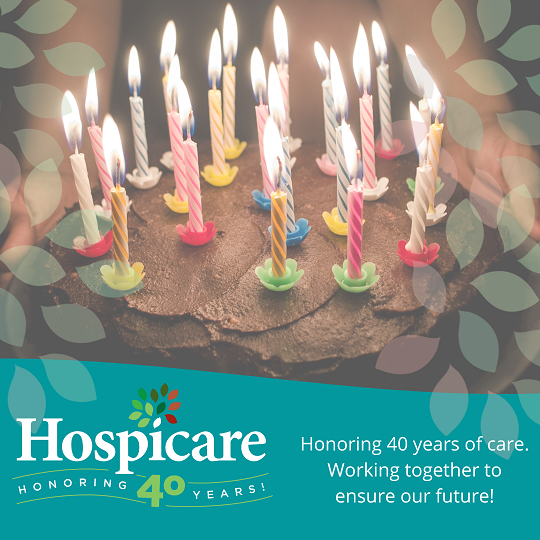
With the 40th anniversary of the founding of Hospicare coming up in 2023, I thought this might be the perfect time to offer a little history of the organization, with a focus on its residence.
Recognizing an unmet need
In the early 1970s, soon after Elizabeth Kubler-Ross’ best-selling book On Death and Dying was published in 1969, there rose up a national conversation about the advantages of home care for the dying over treatment in institutional settings. In Tompkins County, the county’s Health Planning Committee convened a group of concerned citizens and others involved in the health care community to discuss local programs for the terminally ill. The group discovered there were no services in the area that focused on the issues of the dying. In response to that vacuum, Nina Miller and Anne Costello co-founded Hospicare in 1981 to meet the needs of terminally ill patients in their homes. Then, in June 1983, Hospicare was officially incorporated as a not-for-profit organization.
Initially, the Hospicare’s board hired just one nurse to provide information and support services to terminally ill patients and their loved ones. As the program grew, more staff and services were added. In 2002 the agency changed its name to Hospicare and Palliative Care Services of Tompkins County, Inc. Today the organization’s 40 employees and nearly 100 volunteers serve patients and families in both Tompkins and Cortland Counties.
A first in the state
In the early 1990s, the idea of a residence was born. The intent was to make available three new services: respite assistance for home caregivers who find the strain of caring for a dying person momentarily too great; transitional care for terminal patients who are being moved from hospital to home care; and a home for those who are dying but cannot be cared for in their own homes.
There was a roadblock, however, to opening one: New York State law, at the time, didn’t allow for residential hospice facilities. And so, Hospicare staff and volunteers lobbied Albany legislators to change the law. They succeeded in getting legislation passed that allowed “the provision of hospice care in a hospice residence … to provide hospice care to between three and eight patients at one time who otherwise do not have a suitable home or caregiver in order to receive hospice case in their own home.”
Opened to patients in 1995, Hospicare’s Nina K. Miller Hospice Residence (named after the agency’s founder and first director) was the first certified freestanding residential facility in New York State. It sits on more than 11 acres on South Hill in Ithaca and offers six private rooms with views of the extensive gardens, pond, and countryside, meals, activities, and staff on site 24 hours a day.
Services at the residential facility
A recent snapshot of care in the facility: One patient, a mentally alert widower, enjoys taking slow walks in the residence with his walker and a volunteer at his side. He tells stories about his life—his struggles and his accomplishments. His grown children visit nearly every day to sit with him and talk for a bit. In quiet moments, he gazes out at the chipmunks and birds that populate his balcony. Another patient, with advanced dementia, was frightened at first when she was brought to live at the residence, but now she is often relaxed and cheerful, enjoying the warmth of the aides and nurses and volunteers, enjoying having lotion rubbed into her feet, enjoying the soup lunches and the comfortable bed. Another patient, who has a painful condition that seriously limits her mobility, is grateful for the constant care, the pain medication, and the careful attention that is paid to her various food allergies and aversions. Every patient is visited regularly by the spiritual care coordinator, Edie Reagan, and by Hospicare’s medical director, Dr. Lucia Jander, as well as by social workers.
The hospice way of thinking is to provide pain management, symptom control, and emotional and spiritual counseling in a warm, supportive environment via a care team, both for patients living in the Hospicare residence and for patients living in nursing homes or their own homes. Care for patients’ families and other loved ones is also a big part of hospice. Advice, help with planning, medical education, and bereavement support are all mainstays of Hospicare’s work.
Financial considerations
The residential unit is a private-pay facility that is separate from any other institution in the region. While private insurance, managed care providers, Medicare, and Medicaid will pay for the medical services provided, residents pay for the room, board, and custodial care, which is currently set at $350 per day. But there is a generous sliding-scale, and Hospicare never turns away patients for inability to pay. In fact, Hospicare provides so much charitable care and fee reductions that it relies heavily on gifts from the community to make up the difference each year. It is generous donations from individuals and foundations that make it possible for Hospicare to offer bereavement services to the community and hospice care for all who need it, regardless of finances.
Jane Baker Segelken, MA, MSW, is part of the Social Work team at Hospicare & Palliative Care Services. 607-272-0212; hospicare.org
